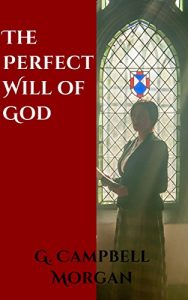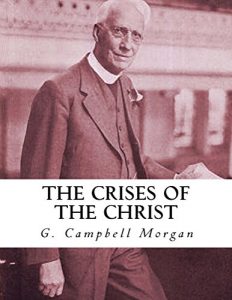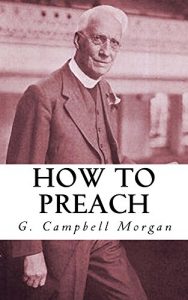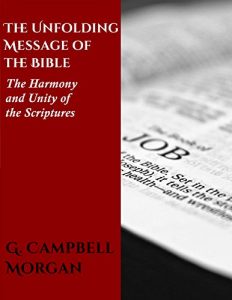DURING recent years two movements have been noticeable in the thought of men outside the Christian Church. First, there has been the development of materialism. The teachings of Darwin, Huxley, Tyndall, and Spencer have tended to the denial of the spiritual in man. Thousands of people who have never read their books have been influenced by their outlook upon life. Moreover, a great many of their first positions have been accepted and taught, and are held until this moment, without any due allowance being made for subsequent statements, which have proved that their teaching consisted in the suggestion of hypotheses, rather than the declaration of ascertained facts. According to such teachers all the phenomena of human life are to be accounted for wholly within the range of matter. It is admitted by them that matter is in itself indestructible; but it is affirmed that the rearrangement of it that takes place at death destroys the identity of human beings. In a more cultured and refined form, and with gleams of hope in the form of doubts, men have been gradually drifting towards materialism; and the effect of this has been seen in the average human life apart from the influence and teaching of Christianity. Earthly, sensual, devilish, are words which fitly describe the vast mass of life apart from God. Some of the old forms of fleshly life have indeed ceased, and there is in the minds of men a new respect for personal character, as a result of the presence of Christianity in the world. A correct view of the condition of the masses of the race would reveal the fact that for the most part life is being lived in the realm of the fleshly, the material, the perishing. Thousands of men, while professing to hold the orthodox creed, are yet living in a practical atheism, and a consequent denial of their own spiritual nature.
The second movement outside the Church has taken the form of a revolt against materialism, and has found its expression in attempts to discover the spiritual—to unfold its laws, and to declare its activities. Spiritualism and theosophy are witnesses to this movement. Mrs. Annie Besant is one of the most remarkable instances of it in individual life. There was a time when she—sickened, alas! by the inconsistencies with which she came into contact within what was called, and falsely called, Christianity—turned her back upon the faith of her early years. She found refuge in denial of high and sacred things; and lived wholly, to all appearance, outside the realm of the spiritual. For her to have found her way back to the acknowledgment of the spiritual in any form is a gain. It is, however, a remarkable fact that one who might have been spoken of as the high-priestess of materialism, in a rebound from that position, has taken a leap into the realm of credulity. Belief in a Mahatma, somewhere amid Himalayan heights, who has never been seen, requires a stretch of credence far greater than a belief in the living. Christ of God, Whose presence on the earth nineteen hundred years ago is an indisputable historical fact, and Whose abiding presence is witnessed by innumerable transformations of character during the centuries.
The second movement outside the Church has taken the form of a revolt against materialism, and has found its expression in attempts to discover the spiritual—to unfold its laws, and to declare its activities. Spiritualism and theosophy are witnesses to this movement. Mrs. Annie Besant is one of the most remarkable instances of it in individual life. There was a time when she—sickened, alas! by the inconsistencies with which she came into contact within what was called, and falsely called, Christianity—turned her back upon the faith of her early years. She found refuge in denial of high and sacred things; and lived wholly, to all appearance, outside the realm of the spiritual. For her to have found her way back to the acknowledgment of the spiritual in any form is a gain. It is, however, a remarkable fact that one who might have been spoken of as the high-priestess of materialism, in a rebound from that position, has taken a leap into the realm of credulity. Belief in a Mahatma, somewhere amid Himalayan heights, who has never been seen, requires a stretch of credence far greater than a belief in the living. Christ of God, Whose presence on the earth nineteen hundred years ago is an indisputable historical fact, and Whose abiding presence is witnessed by innumerable transformations of character during the centuries.










